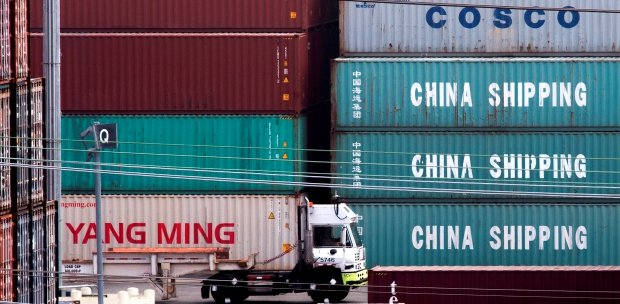'Trade slowdown likely in 2020'

By Azanis Shahila Aman - March 6, 2020 @ 10:39am
KUALA LUMPUR: Malaysia’s trade is likely to slow down this year due to the Covid-19 outbreak, according to some research houses.
This was after a mild contraction in January’s figures following post the US-China phase-one trade deal, they added.
Public Investment Bank Bhd (PublicInvest) said sentiment may remain fragile as there was no certainty how long the outbreak would last.
“Central banks across the region have been swift to act, as have some governments in unveiling stimulus packages.
“Support for consumption and investment activities are underway, though impacts may take a while to filter through into the system. The near-term trade outlook is one of caution,” PublicInvest said.
The country’s exports declined 1.5 per cent to RM84.1 billion in January against the 2.7 per cent gain in December. This was pulled down by a broad-based decline except for refined petroleum, palm oil and palm oil-based products.
Imports dropped 2.4 per cent to RM72.1 billion against the 1.0 per cent increase in December, led by capital goods.
PublicInvest said full export recovery in the region could take time given the emergence of Covid-19, despite the successful breakthrough in US-China trade negotiations.
The outbreak has reached over 50 countries affecting over 80,000 people and disrupting global production and consumptions.
“Investment decisions may correspondingly be delayed, chipping away some momentum in trade,” PublicInvest said.
Ambank Research echoed the bearish trade outlook.
“With the drop in global trade, i.e exports and imports, added with a still global tech down cycle plus weaker commodity prices, there is more downside risk on both our exports and imports.”
It was partly reflected by the poor manufacturing activities reflected by the Markit Manufacturing PMI, which is still in the contraction region.
“On that note, the (country’s) 2020 GDP growth is more likely to be around 3.0 per cent with an upside at 3.8 per cent and downside around 2.5 per cent,” AmBank Research said.
Hong Leong Investment Bank Bhd (HLIB) said the closing of China’s factories had resulted in Caixin/Markit Manufacturing PMI declining to fresh lows of 40.3 in February, from 51.1 in January.
This was expected to have a negative knock-on effect to the rest of the export-dependent countries, including Malaysia.
“Prolonged weakness in capital imports also suggests slower recovery in investments. For now, we maintain our 2020 GDP forecast to remain modest at 4.1 per cent (2019: 4.3 per cent), with growth in first quarter 2020 recording sub-three per cent year-on-year,” HLIB added.
